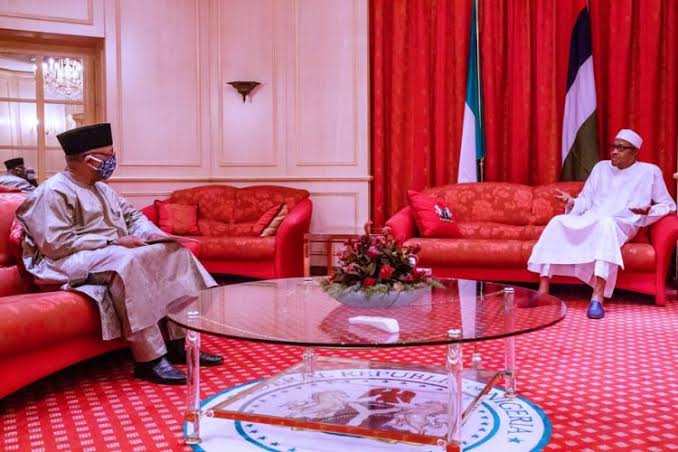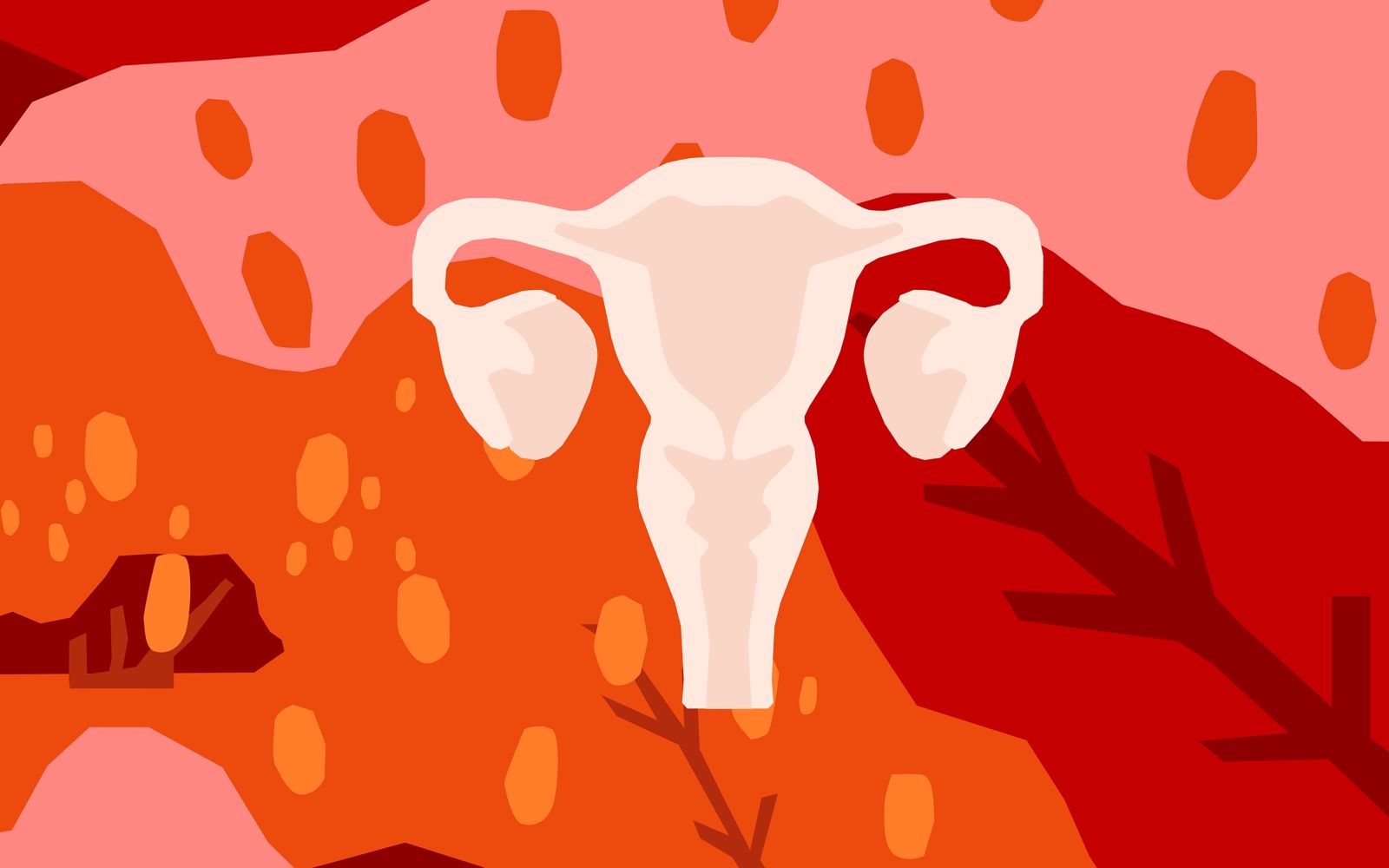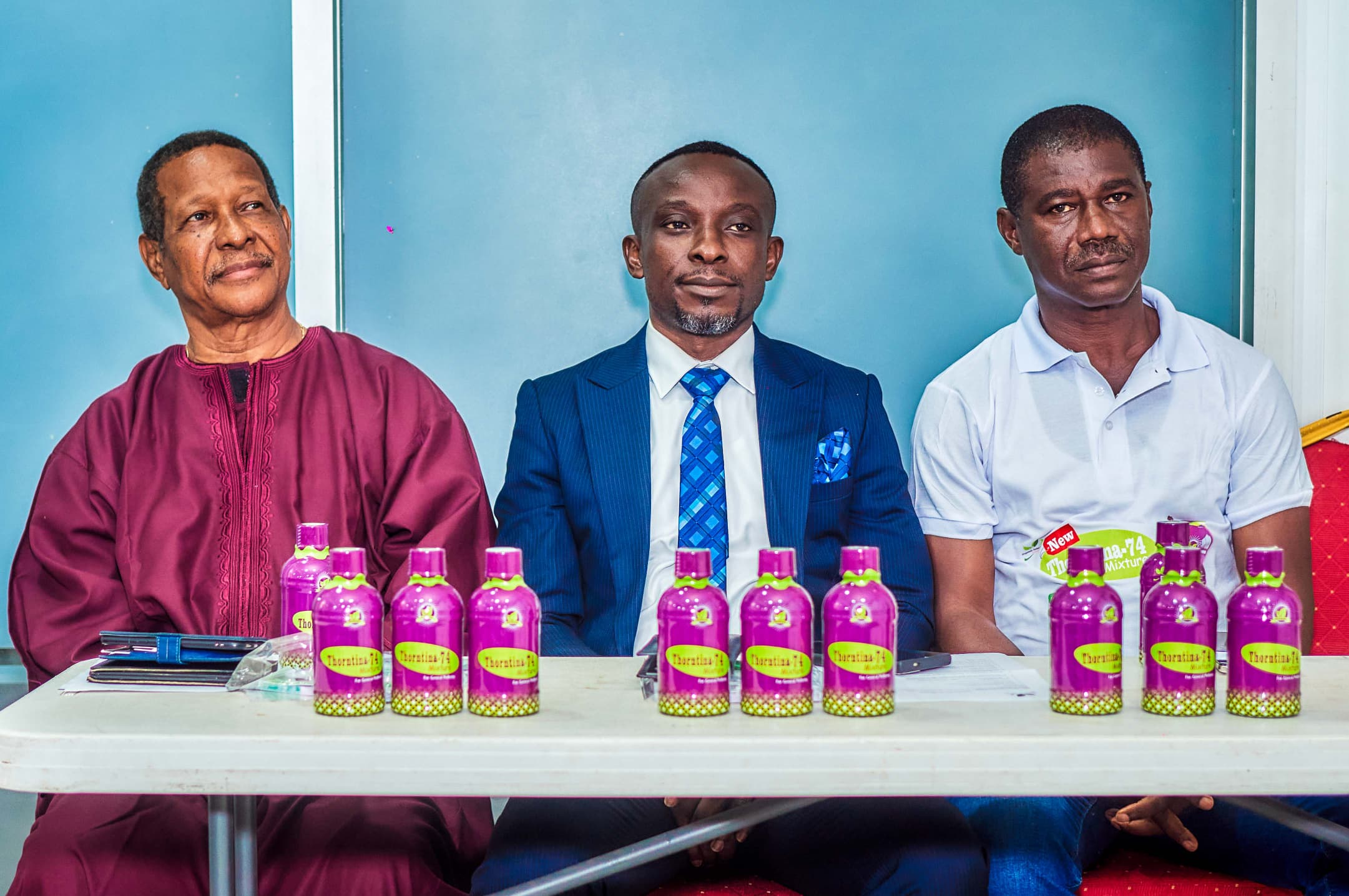Submit Progress Report On Local Vaccine Production Next Month, President Buhari Directs Minister Of Health

President Muhammadu Buhari on Wednesday in Abuja directed the Minister of Health, Dr Osagie Ehanire, to submit a progress report by the end of May 2022 on the indigenous production of vaccines in the country.
The President gave the directive while receiving the leadership of the Nigeria Integrated Biopharmaceuticals Industries Consortium (NIBI), led by Mr Vilarugel Cuyas, Chairman/Chief Executive Officer of Fredlab.
The President commended the NIBI consortium made up of European biotechnology companies Merck, Unizima, Rommelag, and Fredlab, who are collaborating with the Nigerian start-up PIA BioPharma to establish a world-class Bio-Pharma Industrial Complex for the manufacture of vaccines and essential therapeutics in Nigeria.
Stressing that this administration considers food and medicine sufficiency as national security issues, the President asked the health minister and his team to work closely with the consortium on the Federal Government support required for the actualization of the NIBI project within the next few months.
‘‘While the Ministry of Health continues to drive collaboration with investors for vaccines, pharmaceuticals, and medical devices, in a move towards self-sufficiency, I welcome the NIBI consortium’s desire to partner with the Federal Government in support of our agenda and look forward to the implementation of the NIBI project as it takes shape,’’ the President said.
Recounting the impact of COVID-19 pandemic on Nigeria’s economy and health systems and how some nations with comparative advantages in being centres of bio-pharmaceutical productions adopted a “me-first” attitude towards securing their citizens, President Buhari said:
‘‘I want Nigeria to make a bold statement in this field not just for reasons mentioned earlier, but because of its knock-on effects on our economy at large.’’
The President told his audience that Nigeria has learnt key lessons from the pandemic, including that countries must look inward for sustenance in food and medical supplies. ‘‘Having witnessed the impact of the COVID-19 pandemic on our health system, our communal life and national economy, from which we are yet to fully recover, we are reminded that the wealth of a nation is dependent on the health and wellbeing of its citizens.
‘‘ At the advent of the COVID-19 pandemic, Nigeria was quick to respond to what seemed an existential threat, by strengthening the health system’s capacity to handle the pandemic – an initiative that continues till today in collaboration with the state government, private sector, and international partners.
‘‘Key lessons of the pandemic are that nations can be brought to their knees by disease outbreaks that cripple national and international trade, and that countries must be able to look inwards for sustenance in food and medical supplies. The benefit of this Administration’s early investment in agriculture came to light during this global turbulence.
‘‘However, we cannot say the same for essential medicines, health supplies and most importantly vaccines to protect our citizens. Increasing the capacity for in-country production of vaccines and medical supplies has therefore become a matter of not just urgency, but of national security.
‘‘As we saw, many nations who had developed comparative advantages in being centres of bio-pharmaceutical productions adopted a “me-first” attitude towards securing their citizens. These actions placed developing nations, particularly those in Africa at severe disadvantage.’’
The President noted that as part of the fallout and lessons learned from the crises, under his directive, the Minister of Health has been conducting local and international high-level consultations to seek access to the know-how and finance to revive domestic manufacturing of vaccines.
He added that the consultations had become more important as Nigeria prepares to fully transition from the Global Alliance for Vaccines and Immunization (GAVI) support for the supply of vaccines by 2028.
‘‘Since we consider food and medicine sufficiency as national security issues, technical and financial investments and partnerships are priorities in our policy planning, with the assurance that Nigeria has the market and a pool of expert scientists to draw upon, from within and outside the country,’’ he said.













